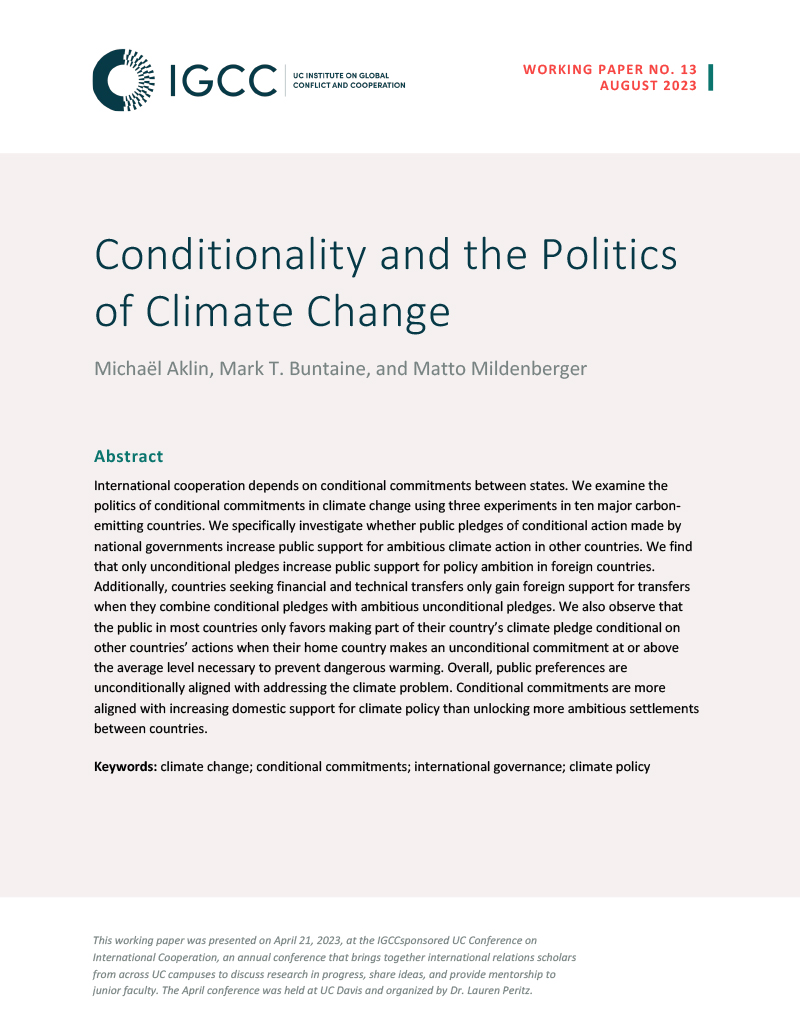Conditionality and the Politics of Climate Change

In this working paper, Michaël Aklin, Mark T. Buntaine, and Matto Mildenberger investigate the effects of conditional climate change pledges on public opinion.
DownloadInternational cooperation depends on conditional commitments between states. Michaël Aklin, Mark T. Buntaine, and Matto Mildenberger examine the politics of conditional commitments in climate change using three experiments in ten major carbon-emitting countries. They specifically investigate whether public pledges of conditional action made by national governments increase public support for ambitious climate action in other countries. They find that only unconditional pledges increase public support for policy ambition in foreign countries. Additionally, countries seeking financial and technical transfers only gain foreign support for transfers when they combine conditional pledges with ambitious unconditional pledges. They also observe that the public in most countries only favors making part of their country’s climate pledge conditional on other countries’ actions when their home country makes an unconditional commitment at or above the average level necessary to prevent dangerous warming. Overall, public preferences are unconditionally aligned with addressing the climate problem. Conditional commitments are more aligned with increasing domestic support for climate policy than unlocking more ambitious settlements between countries.
This working paper was presented on April 21, 2023, at the IGCC-sponsored UC Conference on International Cooperation, an annual conference that brings together international relations scholars from across UC campuses to discuss research in progress, share ideas, and provide mentorship to junior faculty. The April conference was held at UC Davis and organized by Dr. Lauren Peritz.
Thumbnail credit: Casa Rosada